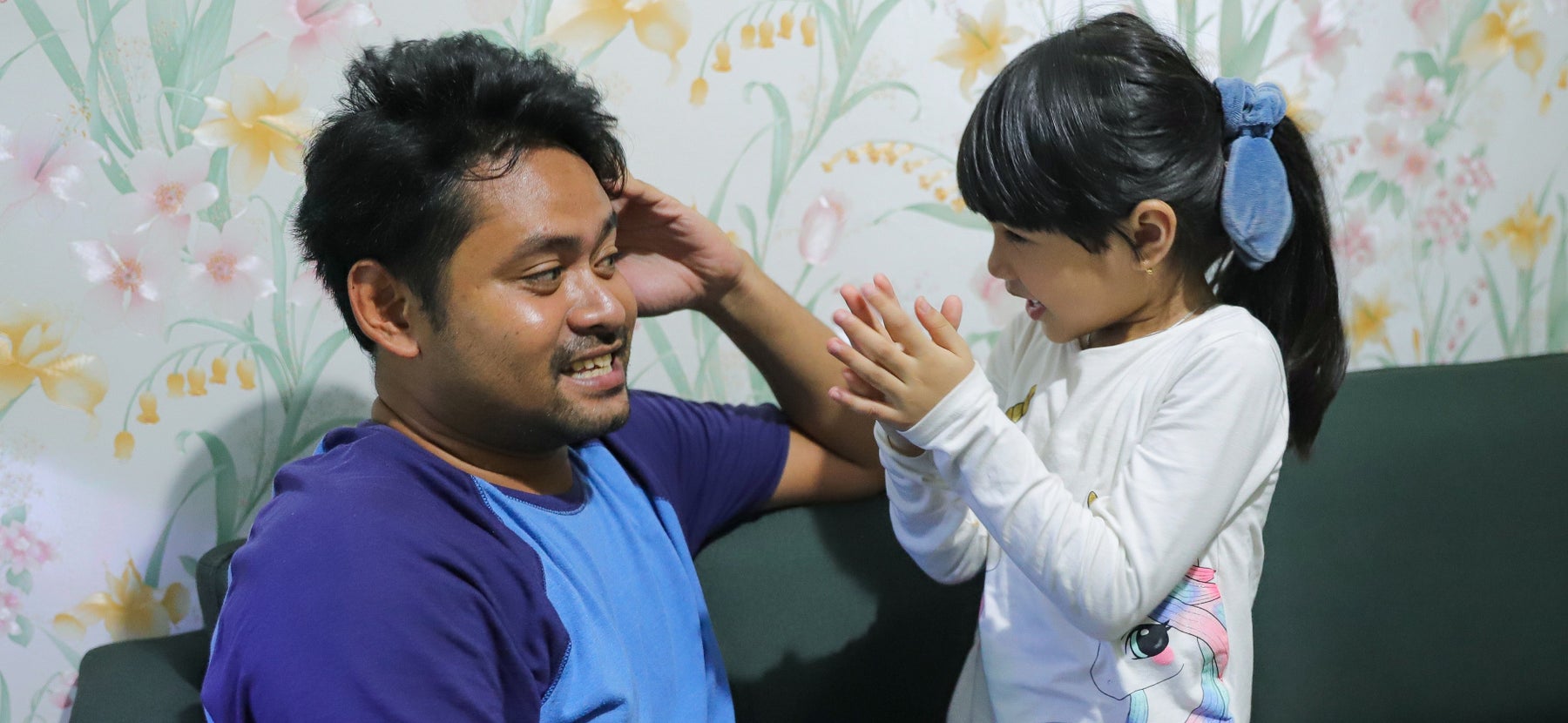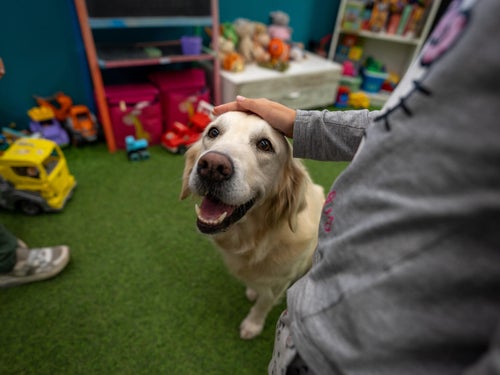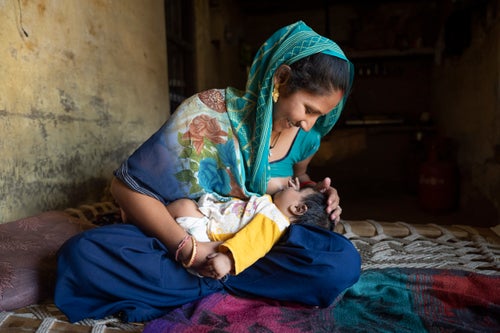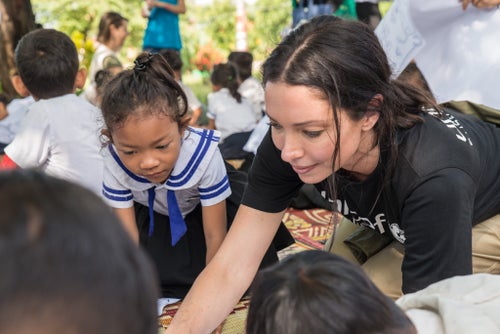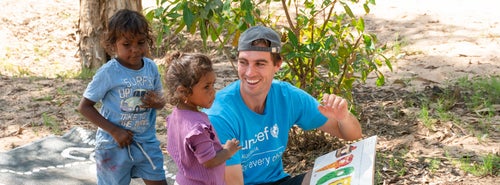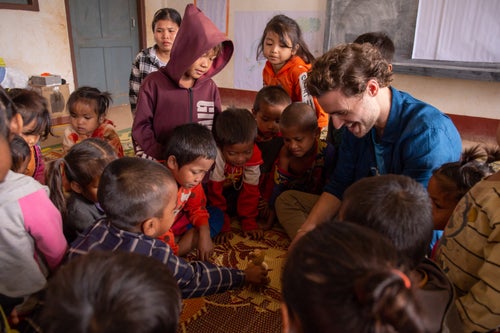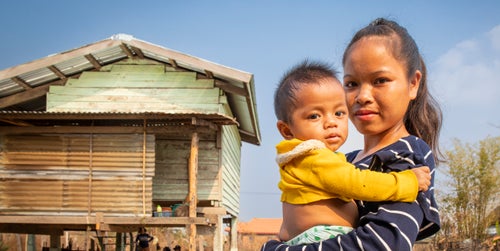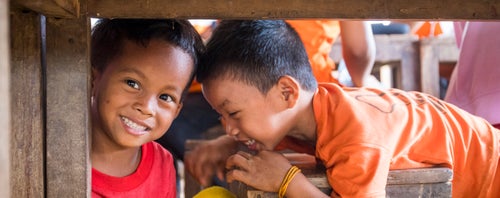Just because your children are stuck inside doesn’t mean they can’t have fun and learn at the same time.
Young children love to play together, but with the latest lockdowns across the country, playdates with friends and games with large groups are off the table. For little ones learning about the world around them and connecting with their peers through play, it can be especially challenging.
We've come up with some creative ways to enjoy playful moments with your child and expand their world even when physical space is limited.
Babies (0-9 months)
Peek-a-boo!
All you need to play this game is your hands and a sweet voice. Sit with your baby, raise your hands (or a piece of cloth) to cover your face, then remove them and say “peek-a-boo!” Your little one will delight at watching you disappear and reappear. As your baby gets older, they will start playing back with you.
See and say
Point to different things around the house while naming and describing them. “See the cat? That’s an orange cat.” This will help to build their language skills while strengthening your bond.
Family band
Sing songs with your baby and create musical instruments from safe objects you find around the house. For example, put buttons or beads inside of an empty bottle to make a shaker and secure it well. Music helps with sensory development, and holding the shaker is great for motor skills. The most important part is to get creative and – of course – to have fun!
The body game
Name your baby’s body parts and point to them to help teach names. “Where is baby’s nose? There it is!” You can point to your own as well to help your child make the connection between the two: “Where is mummy’s nose? Here it is!”
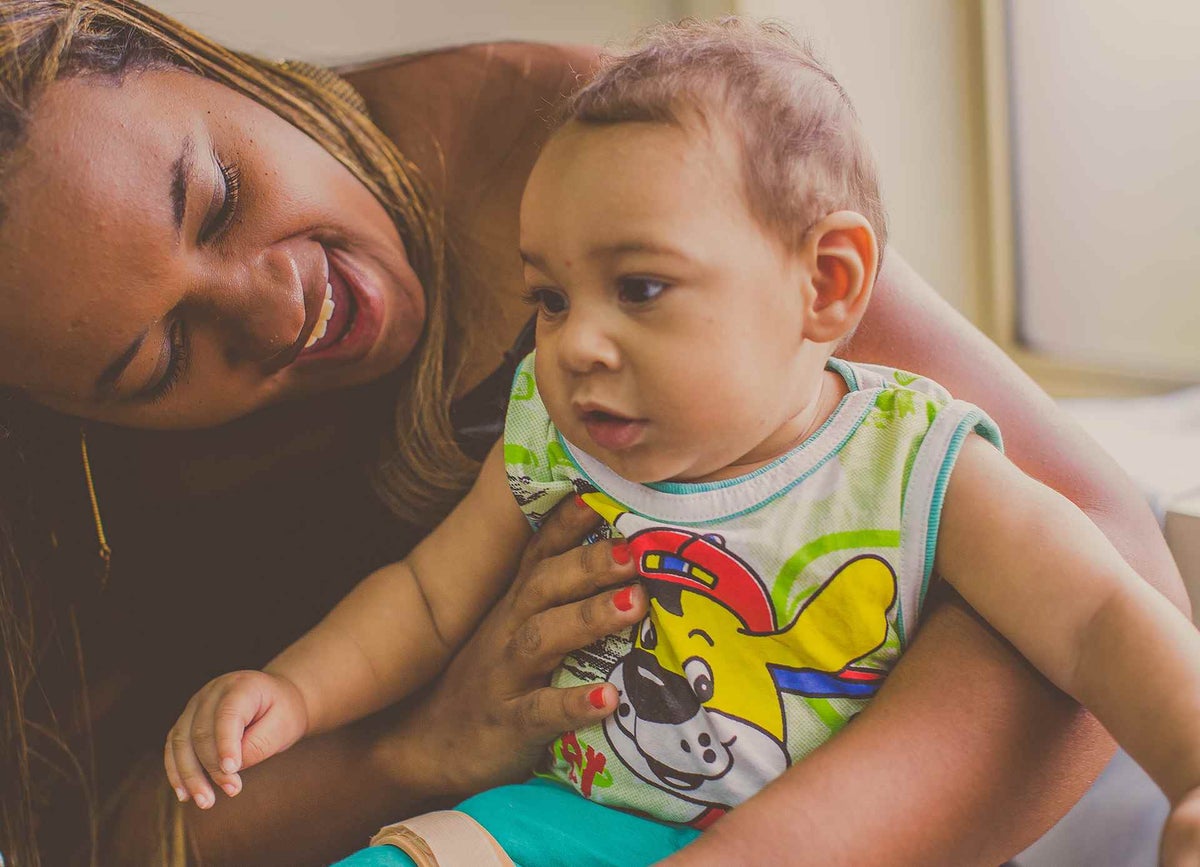
Toddlers (1-2 years)
Box car
Find an empty box/carton and place your child in it safely with some soft blankets to keep them comfortable. Then, pull the box around while making car noises: “vroom vroom!” they will have fun zipping around the house in their new go mobile (and you’ll get some exercise, too!). If space is limited, you can still have the same effect by moving the box from side to side and making noises together.
Kitchen drummer
Turn over safe, shatter-proof bowls, pots and pans to make a set of drums straight from your kitchen. For drumsticks, grab some wooden spoons. Your little rock star will keep entertained exploring all the different sounds they can make. This game is also great for helping your child develop their fine-motor skills.
Free draw
Give your child some crayons and paper and let them draw away! This will allow your child to unleash their creativity and enjoy independent, creative play. When they're done, talk to them about the different colours they used.
Ball pass
Grab a soft ball and roll it back and forth with your toddler. This back-and-forth play is great for confidence building and teaches them that you will respond to their actions.
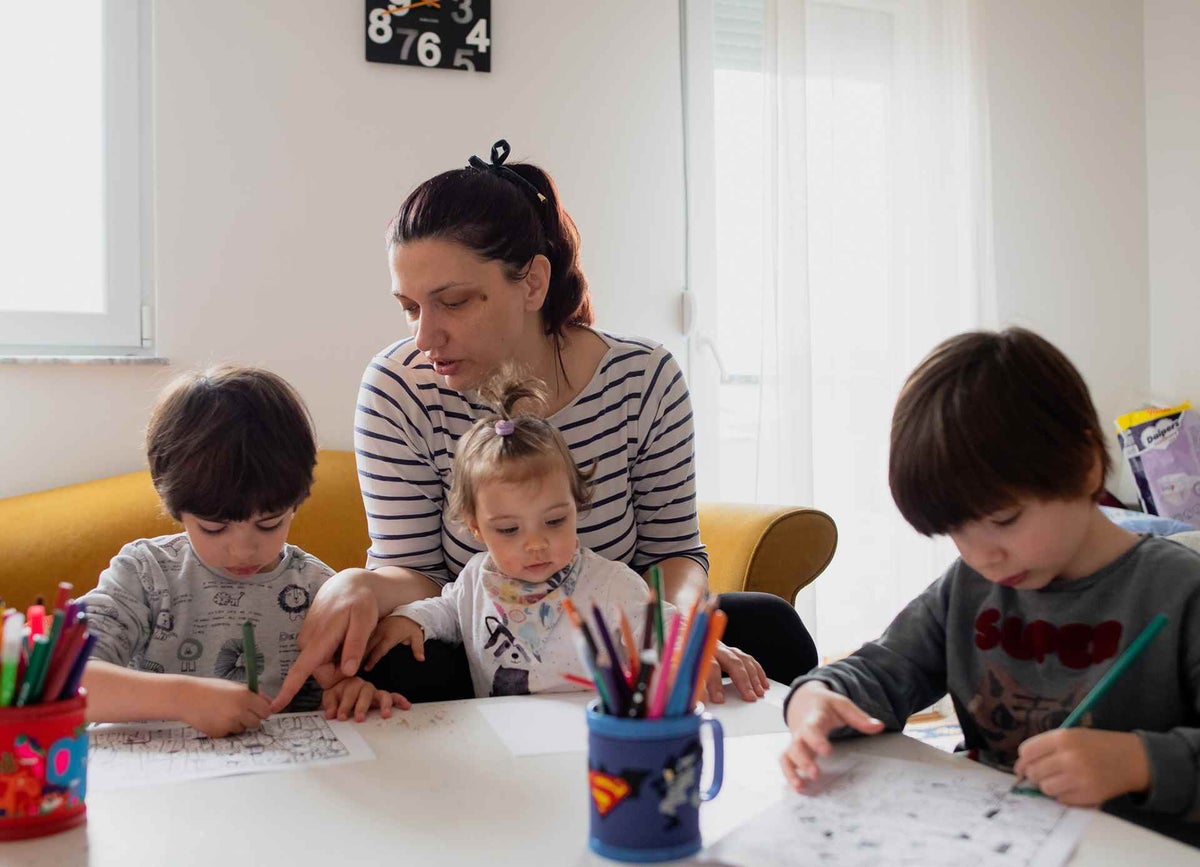
Pre-school children (3-4 years)
Dress up
Grab some different fabrics and clothing and encourage your little one to make a pretend costume out of what you have. Then, play a game together based on what they choose. Who knows what adventures you’ll have!
“I’m going to catch you!”
Play the “I’m going to catch you!” game around the house by playfully chasing your child around your living space. If your child has a lot of energy, this will help to get it all out. You may need to join them for a nap yourself when you’re done.
Name that noise
Make different animal noises and have your child guess which animal you’re pretending to be. Encourage taking turns and let them make some noises too while you guess. This is a great opportunity to teach them more about the animals you each choose, too.
Toddler challenge
Toddlers love to be given challenges as they are growing more physically coordinated. Ask your child “Can you lift your arm? Can you touch your hands to your toes?” Using the names of their body parts in context helps them learn.
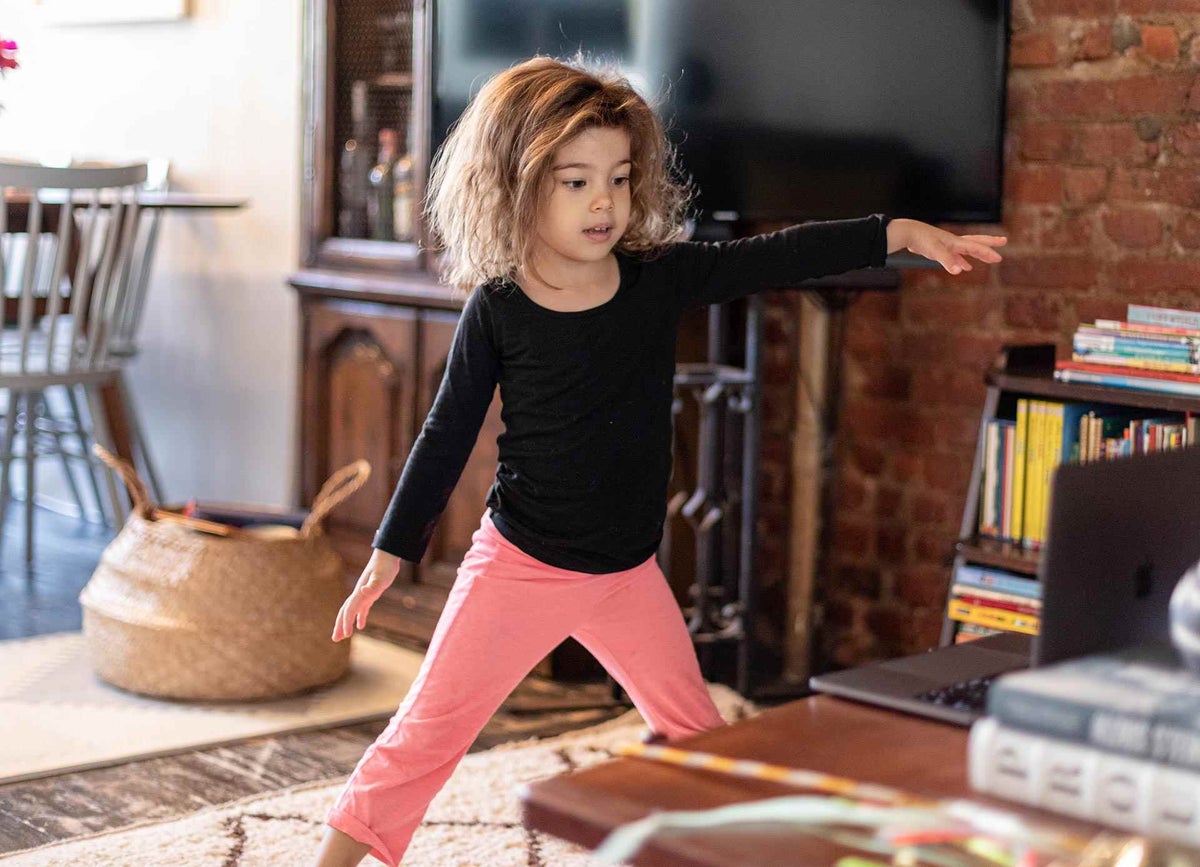
Young children (5-8 years)
Obstacle race
Create an obstacle course using furniture, pillows, and toys – anything safe and soft. Show them how to move through it and have them try to go through as fast as they can. Time them, and try to get them to beat their record every time they go through!
Wash away!
Grab some toys that can safely go in the water, fill up a bucket and let the fun begin. Encourage your child to “wash” their toys by dunking them and playing with them in the water and then cleaning them off with a soft cloth.
Make believe
Have your child take the lead and encourage them to come up with a make-believe scenario. Follow along with their instructions and ask them questions about the world they have created.
Build-a-snack
Have your child help you prepare a snack for the family and challenge them to use as many colours as they can. Grab some healthy options and have your child lay them out on a plate in a design they like.
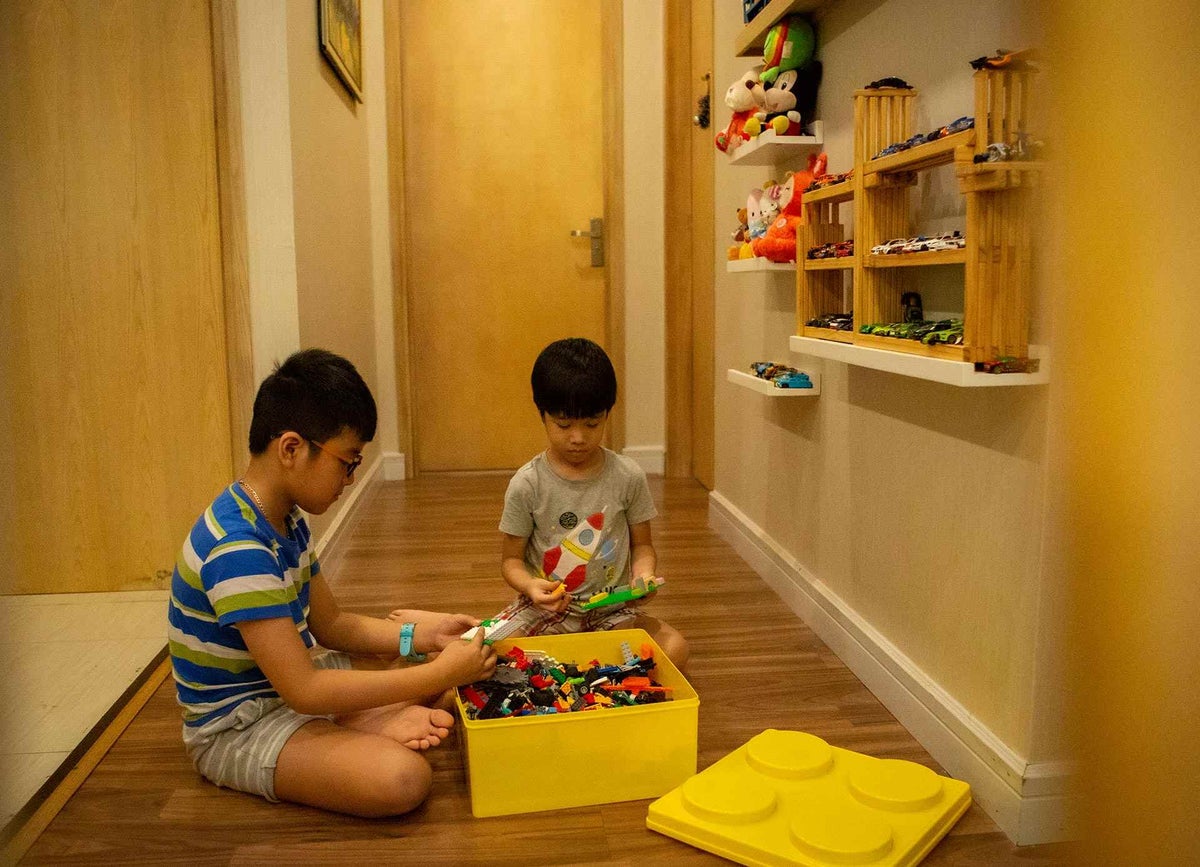
See the UNICEF Australia Resources Hub for more advice, tips and activities to support you and your family through the coronavirus pandemic, from UNICEF experts in health, early childhood development, education, and child protection.
Related articles
Stay up-to-date on UNICEF's work in Australia and around the world



